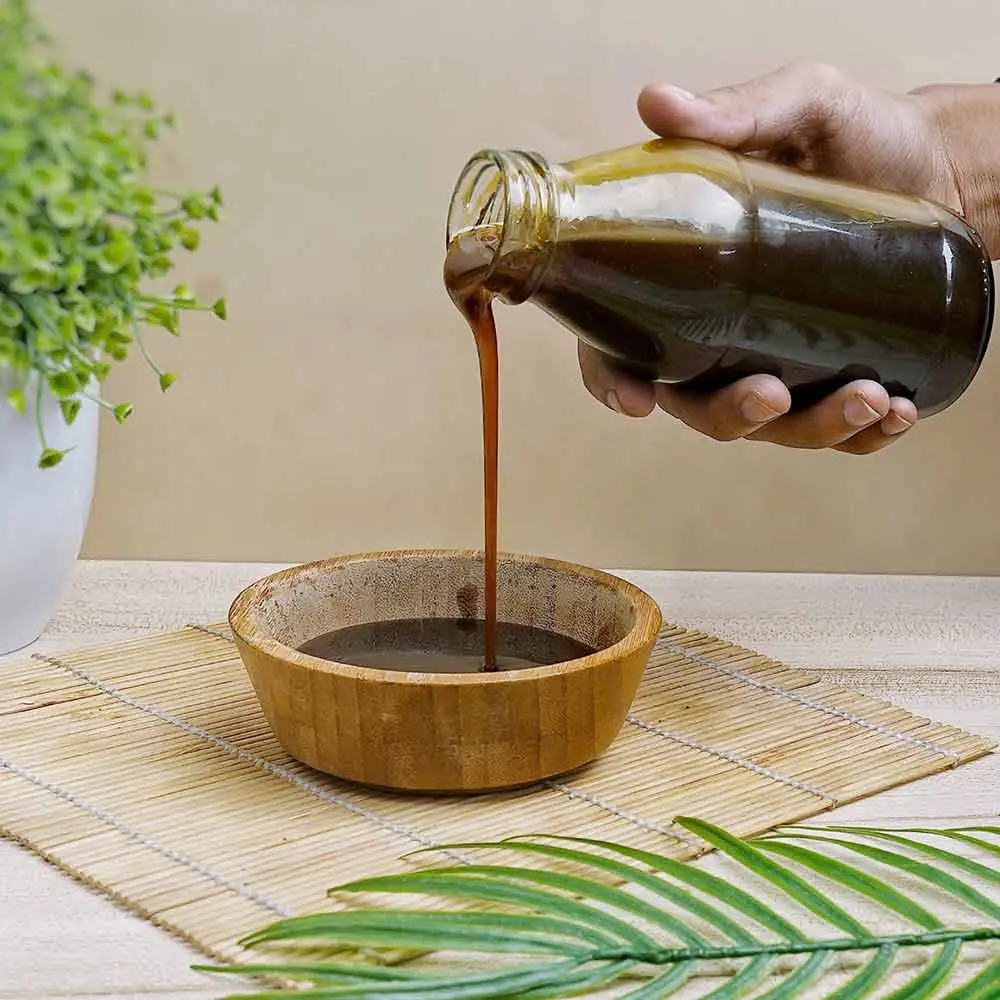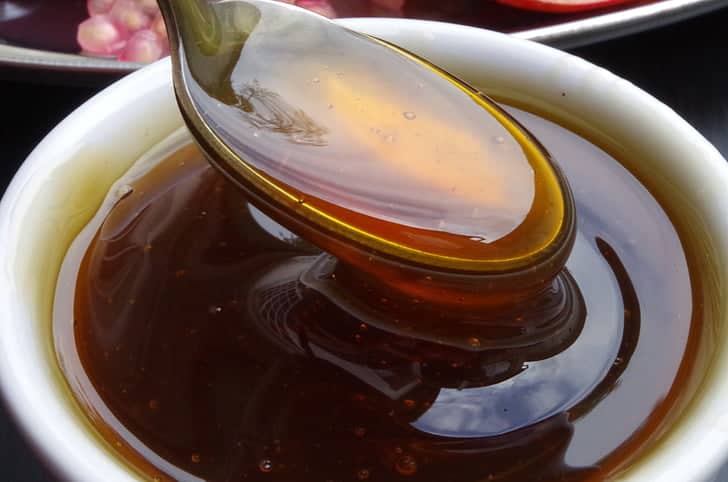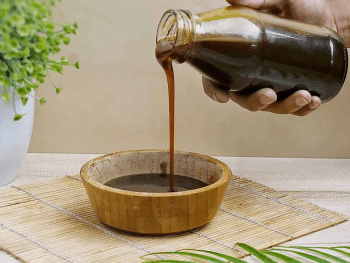
Coconut nectar, often called coconut blossom nectar, has been gaining recognition worldwide as a healthier alternative to refined sugar. Unlike ordinary table sugar that is stripped of nutrients, this golden-brown liquid offers more than just sweetness. Derived from the sap of coconut palm blossoms, it provides a mild caramel-like flavor and carries essential nutrients that appeal to health-conscious individuals. As awareness grows about the harmful impact of refined sugar on health, people are looking for natural substitutes that are both flavorful and beneficial. One such option is coconut palm syrup, which is valued not only for its taste but also for its nutritional composition.
In this article, we will explore the nutritional profile of coconut nectar, its health advantages, its glycemic index, and how it compares to other sweeteners. By the end, you will understand why this natural product is increasingly becoming a pantry staple for those seeking balance between wellness and indulgence.
What is Coconut Nectar?
Coconut nectar is harvested by gently tapping the flower blossoms of the coconut palm (Cocos nucifera). The sap that flows out is collected and then heated at low temperatures until it thickens into a syrup. Unlike refined sugar, which goes through bleaching and chemical processing, coconut sap is minimally processed, ensuring it retains more of its natural properties.
The syrup is amber in color with a flavor that is sweet but not overpowering. It carries subtle caramel notes, which makes it versatile in culinary applications. You can drizzle it over pancakes, stir it into coffee, or use it in baking to add depth of flavor. Because its sweetness is gentler than that of honey or maple syrup, it blends well with both savory and sweet dishes.
Nutritional Composition of Coconut Nectar

The main appeal of coconut palm syrup lies in its nutritional profile. While it should still be consumed in moderation, it contains more than just “empty calories.”
Calories and Carbohydrates
A tablespoon of coconut blossom nectar provides about 45–50 calories and 11–13 grams of carbohydrates, mostly from natural sugars like glucose, fructose, and sucrose. These sugars occur naturally and are accompanied by small amounts of other nutrients, unlike refined sugar which is pure sucrose.
Vitamins
Coconut sap provides trace amounts of vitamins, especially B-complex vitamins such as:
- Vitamin B1 (thiamine): Supports energy metabolism.
- Vitamin B2 (riboflavin): Helps with cell function and energy production.
- Vitamin B3 (niacin): Plays a role in healthy skin and nerve function.
- Vitamin B6: Important for protein metabolism and cognitive health.
Although present in small quantities, these vitamins add nutritional value that is absent in processed sugar.
Minerals
Another reason coconut palm syrup is valued is its mineral content, including:
- Potassium: Maintains fluid balance and supports muscle function.
- Magnesium: Important for bone strength and enzyme function.
- Zinc: Helps boost immunity and wound healing.
- Iron: Essential for carrying oxygen through hemoglobin.
These minerals may not cover daily needs but they contribute positively to overall nutrition.
Prebiotic Fiber (Inulin)
What makes coconut nectar unique compared to many sweeteners is the presence of inulin, a type of dietary fiber. Inulin functions as a prebiotic, encouraging the growth of beneficial gut bacteria. A healthy gut microbiome supports digestion, nutrient absorption, and immunity.
Glycemic Index and Blood Sugar
A major advantage of coconut blossom nectar is its relatively low glycemic index (GI). With a GI of about 35–40, it causes a slower rise in blood sugar compared to white sugar (GI 65). This makes it a friendlier option for people trying to stabilize their energy levels and avoid sugar crashes.
However, it is important to note that coconut sap is still a form of sugar. People with diabetes should consume it cautiously and not treat it as a sugar-free option. Moderation remains essential.
Health Benefits
When included responsibly in the diet, coconut palm syrup can offer several health advantages:
- Nutrient Support – Unlike refined sugar, which offers no nutrients, this sweetener contributes small amounts of vitamins and minerals.
- Better Blood Sugar Response – Its lower GI means fewer sudden spikes in blood glucose.
- Gut Health – Thanks to inulin, it supports the growth of probiotics in the gut.
- Sustainability – Coconut palms are resilient and can provide sap for decades without harming the tree, making this product eco-friendly.
- Dietary Flexibility – Naturally vegan and gluten-free, it fits well into different dietary lifestyles.
Coconut Nectar vs. Other Sweeteners
To understand its value, let’s compare coconut blossom nectar with other popular sweeteners:
- Refined Sugar: High GI, no nutrients, associated with obesity and diabetes.
- Honey: Contains antioxidants but is high in fructose and unsuitable for strict vegans.
- Maple Syrup: Provides minerals like manganese but generally has a higher GI.
- Agave Syrup: Extremely high in fructose, which may harm liver health in excess.
From this comparison, coconut palm syrup stands out for its balance of minerals, fiber, and lower GI, making it a strong contender as a healthier alternative.
How to Use Coconut Nectar
This natural sweetener is versatile in the kitchen. Here are practical ways to include it in daily meals:
- Beverages: Stir it into coffee, tea, or smoothies for a natural sweet flavor.
- Baking: Replace sugar or honey in cakes, cookies, or muffins for a richer taste.
- Cooking: Add it to sauces, glazes, or marinades for savory dishes.
- Breakfast: Drizzle over oatmeal, yogurt, or pancakes.
Since it is less sweet than sugar, recipes may require a slightly larger amount to achieve the same taste.
Things to Keep in Mind
While coconut blossom nectar offers benefits, there are factors to consider:
- Calories Still Count: Excess intake may lead to weight gain.
- Dental Concerns: Like any sugar, it can contribute to cavities if consumed frequently.
- Cost: Often more expensive than refined sugar or honey.
The key is to enjoy it in moderation as part of a balanced diet.
Conclusion
Coconut nectar, or coconut blossom syrup, is more than just a sweetener. It provides a unique nutritional profile, including vitamins, minerals, and prebiotic fiber, along with a lower glycemic index compared to refined sugar. While not a superfood, it represents a smarter, more sustainable choice for those aiming to balance health and flavor.
By incorporating this natural coconut sweetener in moderation, you can enjoy its caramel-like taste while supporting better digestion, steadier energy, and overall wellness. As more people move away from processed sugars, coconut blossom nectar is proving to be a valuable addition to the modern healthy kitchen.



